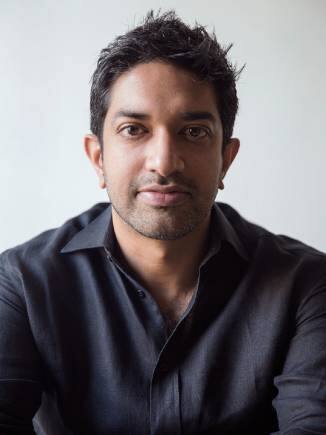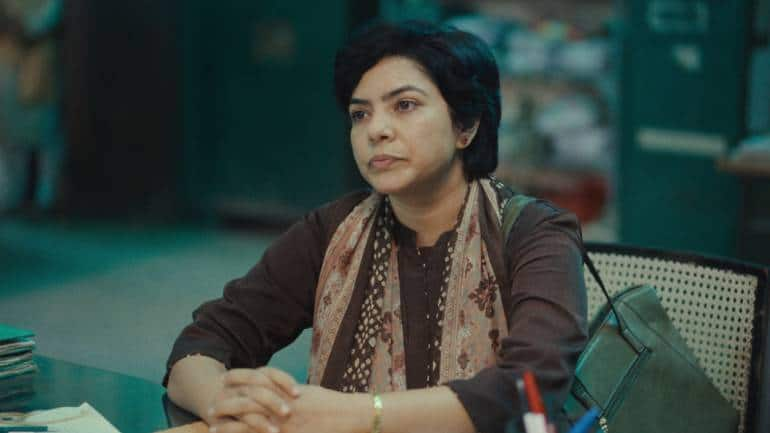



The pilot episode of the new Netflix series Trial By Fire ends with the camera closing in on the face of Neelam Krishnamoorthy (played by Rajshri Deshpande). Sitting on the couch at home, the day after her children pass away in a catastrophe, she grips her husband’s hand as an ad for a shiny new luxury mall plays on the Sansui colour TV in front of them. In those final seconds, the look in her eyes flicks from despair to anger to resolve.
In 1997, a fire broke out at the Uphaar cinema in Delhi during a screening of JP Dutta’s Border. Smoke engulfed its balcony section; there were no fire exits, no ushers. Fifty-nine people died by asphyxiation inside the theatre hall, while watching the year's biggest blockbuster.
Neelam and Shekhar Krishnamoorthy lost their teenage children. They were two of thousands affected by the incident, directly or indirectly. In the years to come, they formed an association for the victims of the tragedy; and ever since, have been fighting court cases to hold the Ansal brothers, the owners of Uphaar cinema, and also the Ansal Plaza, accountable.
Trial By Fire, produced by Endemol Shine and helmed by Prashant Nair (Umrika, Tryst With Destiny), is based on Agnipareeksha, the book Neelam Krishnamoorthy wrote about their long, difficult journey, published in 2019.
“I’d heard of this incident before, but it resurfaced when Siddharth Jain (of House of Talkies) gave me the book in 2019,” says Nair, who currently lives in Spain. “We started work on it in early 2020, but then of course the pandemic hit. It took its time and here we are.”
 Prashant Nair
Prashant NairTrial by Fire, released on January 13, has already amassed acclaim for the performances by its ensemble cast, which along with Rajshri Deshpande, features Abhay Deol, Anupam Kher, Ashish Vidyarthi, Ratna Pathak Shah and more.
It has also been praised for the restraint and empathy with which Nair and crew have told this story, spanning 25 years with real-life events with no resolution.
It is by no means easy to watch; and it could not have been easy to make either. In an interview, Nair talks about the challenges, process and purpose behind making Trial by Fire. Excerpts:
There have been multiple cases, verdicts, appeals. But yes, the Ansals were sentenced on tampering of evidence charges last year, and that was later reduced.
It’s always tricky when you’re depicting things inspired by real life. Our primary source was the book. It was a very detailed account of the event, the text we kept going back to. We wanted the piece to be nuanced and balanced; to tell the story of the Krishnamoorthys but also of the many lives that the event had touched and that were involved with it. So we had a research team that worked on this for three-four months.
Then there were court documents that we had access to. Right after the incident, the DCP Naresh Kumar had done a really wonderful, beautifully-written report; very comprehensive about everything that went wrong. We used that as our primary reference for the facts of the day.
I think there’s some really great work out there on the judicial system. We were more interested in the question: What does it take out of you to go to the courts, when you rely on them for justice? What is the human cost? I read recently that there are four-and-a-half crore cases stuck in the courts. So these questions aren’t unique to the Krishnamoorthys. It’s really about the toll of fighting for justice for so long; justice that should’ve been obvious.
How involved were the Krishnamoorthys in the making of Trial By Fire?They’d been pretty involved from the beginning. We met with them extensively. They’re incredible, they’ve organised all the court documentation and are so thorough in their knowledge of the case and all the laws that are associated with it. They made themselves available to us, but they also respected us as filmmakers. They understood this was not a documentary, and asked us to feel free to go with it.
With the actors, my preference was for them to not meet the Krishnamoorthys initially. They had the information, they had interviews, the book, etc. But very often, I find that the physical elements of somebody, when you’re trying to be them, can be a bit of a crutch or a distraction. What we really wanted was the emotional truth. We wanted them to be in the moment when they had to play these very challenging scenes.
How did they react when they saw the final cut?We shared the series with them towards the end. They were overwhelmed at first. They were seeing 25 years of their lives, and we hadn’t really held back. We felt that for people to connect with it, we had to really emotionally push it. But I think they’re happy that it’s out there.
It was nerve-wracking for me. Because as a filmmaker, you want the audience to feel what they felt. But they don’t need to feel that again. So there’s almost a contradiction; that’s always a tough moment. But they’ve been great.
 Rajshri Deshpande as Neelam Krishnamoorthy in 'Trial by Fire'. (Image source: Netflix)You locate the pilot episode in the 1990s using technology: the colour TV, the Nintendo set, the bulky personal computers. What other techniques have you used to locate scenes at different times in the last 25 years?
Rajshri Deshpande as Neelam Krishnamoorthy in 'Trial by Fire'. (Image source: Netflix)You locate the pilot episode in the 1990s using technology: the colour TV, the Nintendo set, the bulky personal computers. What other techniques have you used to locate scenes at different times in the last 25 years?We’ve played with time a lot. We’ve done this series as a novel and kept it non-linear. So to show the progression of time, we’ve used a lot of techniques—things like lighting, texture, extensive use of grain.
We’ve also worked on the house a lot. In real life, the Krishnamoorthys’ house would turn from a family home into an office, full of documents. If you visit their house now, it’s an archive of everything related to this case, because that’s their life’s focus at the moment.
We’ve also used minimal makeup for the aging of Shekhar and Neelam, but mostly we’ve relied on Abhay and Rajshri’s acting. Basically, when you’re doing something like this, every department has its own tools to tell that story, the passing of time. That was one of the more enjoyable aspects of this project, to see how everybody brings their craft to telling this story.
The pilot episode, where the Krishnamoorthys realise what had happened, is very intense. What was your brief for Rajshri and Abhay to handle grief?I really wanted them to be in the moment. Those are very intense scenes, those are inspired from Mrs Krishnamoorthy’s book. The scene where she’s looking through the footage, to see if she can find her kids, is her book. Which, if you think about it, is unimaginable. She’s a very strong woman, but to have to do that…
I think a lot of things failed in this whole situation in terms of the response, not only the safety codes and norms that were violated. In this episode, we also show how sometimes the mechanisms for helping people who’ve lost someone are also, in a way, a bit limited or sometimes even oppressive. I mean, you lose someone and immediately you are confronted with ritual, paperwork, certificates—which makes grieving itself very difficult.
So for the actors, the brief was to just be open, in the moment. For us, it was to make it safe and comfortable for them to push it and be as vulnerable as possible.
What made you decide you wanted to work on Trial by Fire?One thing that really spoke to me while reading the book, was the sense of conviction and resilience that these two parents had. I wondered how they found the strength to do this, what the process of that would’ve been for them and how hard it was for them to get justice that should have been, well, obvious.
The other thing was just the fact that this wasn’t Bhopal or Chernobyl. This wasn’t removed; a cinema is very much part of the fabric of our daily lives. You take your kids there, you do some shopping when your parents are watching a film, you go on a date there. You almost lull your senses and allow yourself to be transported, because you feel you should be safe. That you are safe when the lights go down. That felt relevant, given the number of public safety issues and the rate at which we’re developing.
Those two things led me to feel there was an important story to be told, one that had a strong emotional quotient to it. The more I dug deeper into it, it felt like a complex, rich world where you could talk about some relevant themes that are, unfortunately, still very relevant.
What are those themes, apart from the obvious David vs Goliath battle?We look at the incident in many different ways. It touches upon the judicial system, on public safety. We explore the idea of revenge vs justice. What makes someone who’s guilty, truly guilty—because if you think about it, we’re all guilty of taking shortcuts in some sense.
Discover the latest Business News, Sensex, and Nifty updates. Obtain Personal Finance insights, tax queries, and expert opinions on Moneycontrol or download the Moneycontrol App to stay updated!
Find the best of Al News in one place, specially curated for you every weekend.
Stay on top of the latest tech trends and biggest startup news.